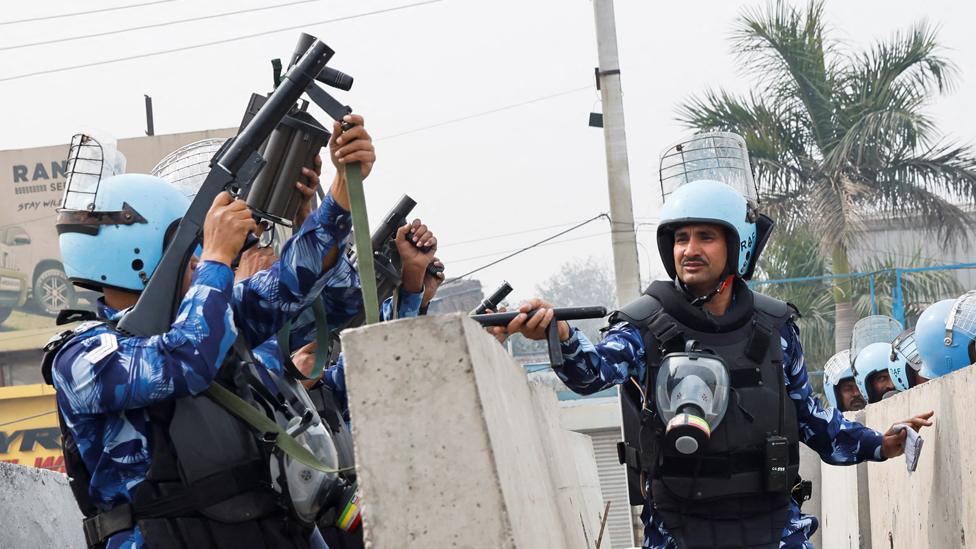India farmers' protest: X admits to taking down posts and accounts
- Published
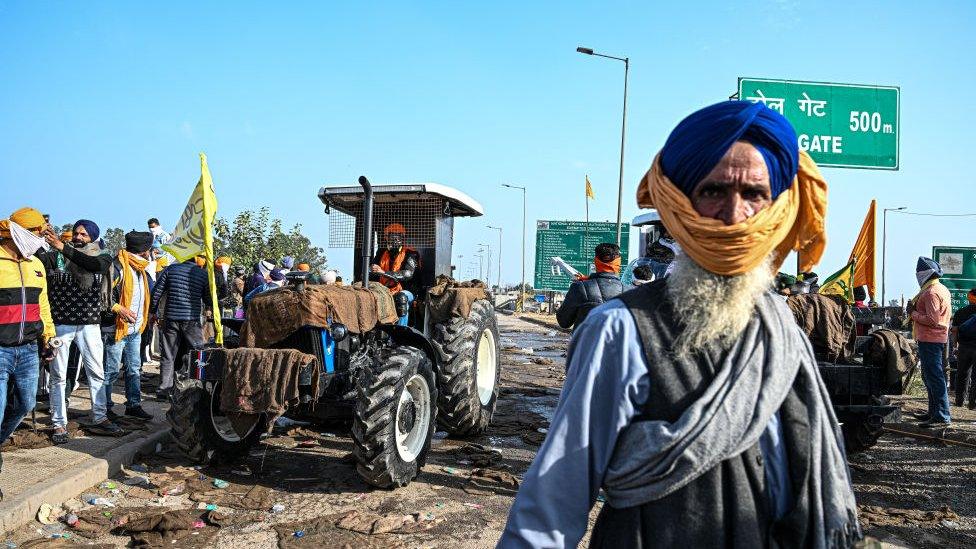
Farmers have been protesting since 13 February, demanding floor pricing for their crops
Social media major X (formerly Twitter) has admitted to taking down accounts and posts related to the ongoing farmers' protests in India.
The site has claimed it took down the pages after the Indian government sent them "executive orders".
The orders were "subject to potential penalties, including imprisonment", X said in a statement, adding that it "disagreed with these actions".
X's clarification was shared on their official handle @GlobalAffairs.
Several activists had earlier complained about their posts being removed.
X user and Indian journalist Mohammed Zubair wrote on Monday that "many influential X accounts" of reporters, influencers and prominent farm unionists covering farmers' protest in India were "suspended".
Mandeep Punia, a journalist, told the BBC that his account and that of his news platform - Gaon Savera - have been withheld.
"We are professional journalists covering rural India. We are reporting from the ground and the government doesn't want that. The government is blocking our voice, but equally this also affects our livelihood, our means of earning a living," he said
In its clarification, X said the accounts and posts were being withheld in India alone "in compliance with the orders".
It, however, added that the platform did not agree with the government action and maintained that "freedom of expression should extend to these posts".
The platform also said it had legally challenged the government's "blocking orders", without specifying which court they had petitioned.
India's main opposition Congress party has criticised the government for the clampdown, accusing it of trying to silence dissenting voices in a democratic country. Several X handles too have criticised the government for shutting down critical social media posts.
The government has yet not responded to the X statement or the BBC's request for a response.
Several farm unions in India have been on strike since 13 February seeking floor pricing, which is also called minimum support price, for their crops. The protesters have been attempting to march to India's capital, Delhi, from the neighbouring states of Punjab, Haryana and Uttar Pradesh.
But the authorities have heavily barricaded the city borders with barbed wire and cement blocks to stop them. Haryana and Uttar Pradesh states, which are ruled by the governing Bharatiya Janata Party (BJP), have deployed a large number of police and paramilitary troops to stop the farmers from reaching Delhi.
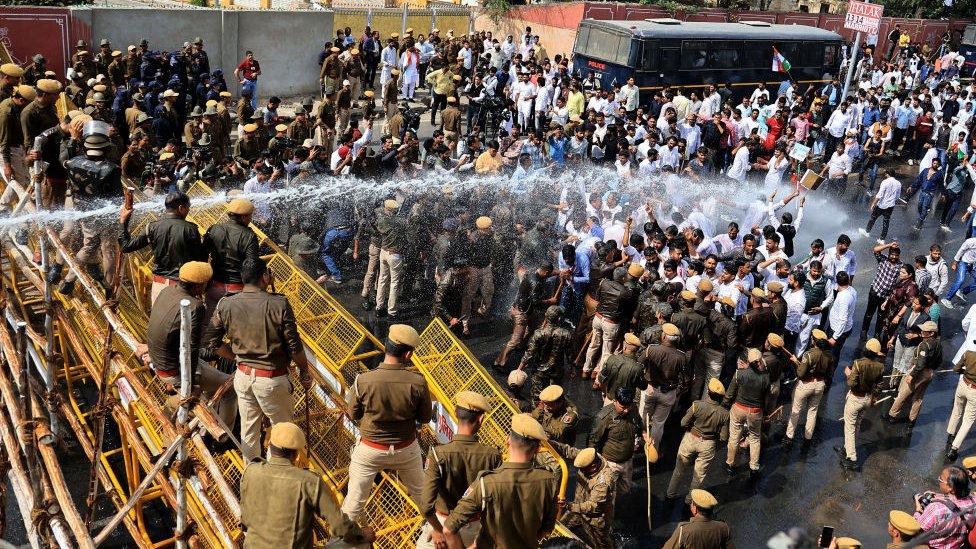
Opposition parties in India have lent their support to the farmers' protest
Activists say farmers are a major voting bloc in India and the government does not want a protest spectacle - with farmers on tractors and other vehicles - on Delhi roads, especially with general elections due in the next few months.
In 2020, the farmers had started a similar protest and hunkered down at Delhi's borders for months and the government does not want a repeat of that.
While the government has held several rounds of talks with the unions to quell the protests, no consensus has been reached yet. On Wednesday, a 22-year-old protester died during a reported standoff with Haryana police. Punjab state authorities told the BBC that the cause of death was a "bullet wound to the head".
With additional reporting from Yogita Limaye

Read more India stories from the BBC:
Related topics
- Published20 February 2024
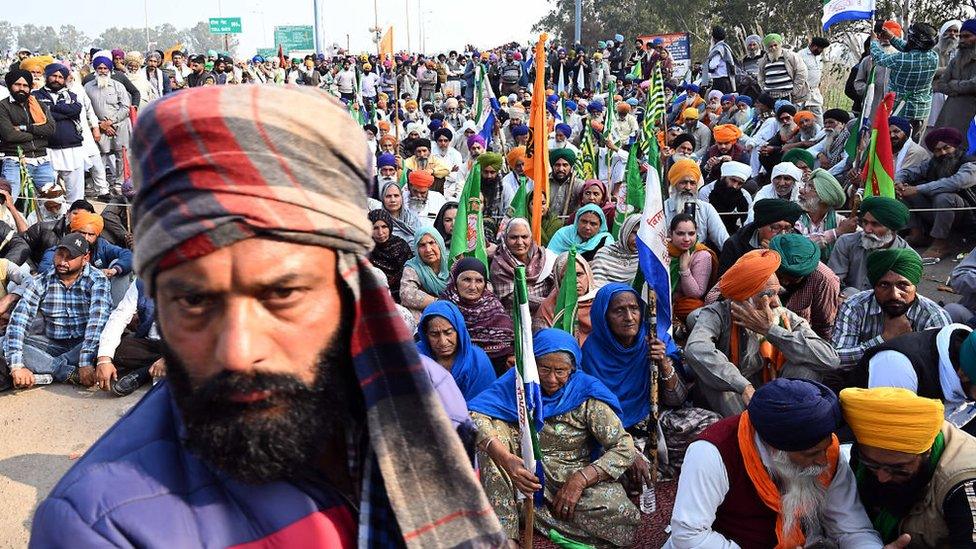
- Published21 February 2024
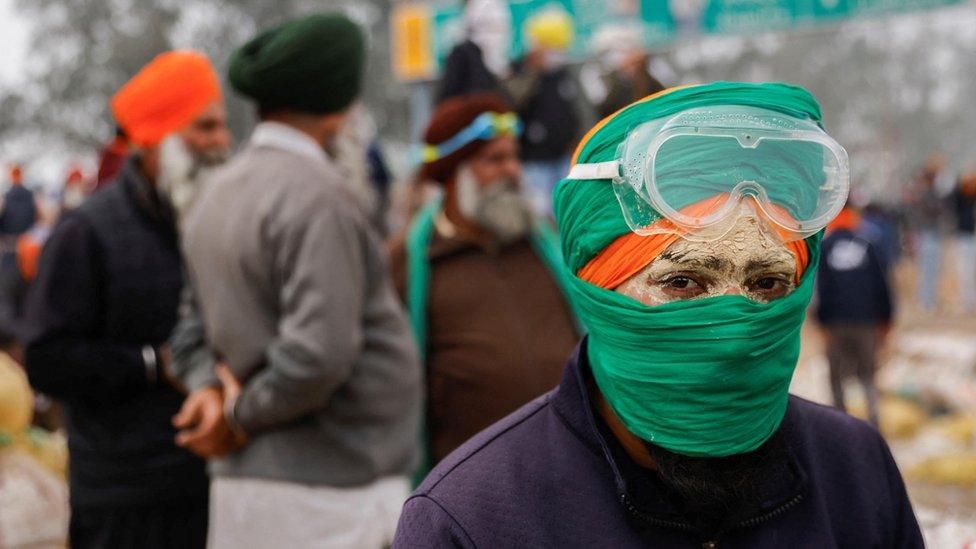
- Published13 February 2024
